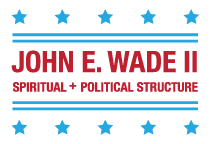Henry Kissinger served as Secretary of State under Presidents Richard Nixon and Gerald Ford and advised many other presidents on foreign policy. His book contains a wonderful assemblage of information and wise analysis, culled throughout his lifetime, about history and worldwide current events. He even explains modern technology, from nuclear weapons to cyberspace warfare. For me, it took ardent curiosity and a quest for wisdom to read and ponder this book.
One key event in the history of world order was the Peace of Westphalia, which was negotiated in two German towns after the Thirty Years’ War (1648). After that horrific period of war, “…the most cited diplomatic document in European history [even though]…no single treaty exists to embody its terms…The state, not the empire, dynasty, or religious confession, was affirmed as the building block of the European order.” Kissinger stated that “the universal relevance of the Westphalian system derived from its procedural—that is, value neutral—nature. Its rules were accessible to any country: noninterference in domestic affairs of other states; inviolability of borders, sovereignty of states; encouragements of international law.” Basic to this peace was a balance of power between sovereign nations and groups of nations.
When he writes of America’s actions abroad, Kissinger states that “…the American vision rested not on an embrace of the European balance-of-power system but on the achievement of peace through democratic principles.” It is well known that Wilson justified America’s intervention in World War I to “to make the world safe for democracy.” According to Kissinger, practically all of President Wilson’s predecessors would have agreed with Wilson. Only Wilson’s view was different in that he believed an international order could be possible within a single lifetime, even a single administration.
The one and only criticism I have of the book is that I believe globalization, corporations, businesses, spiritual entities, and all other forms of human entities outside of national governments, are the light at the end of the tunnel in terms of preventing wars and having a peaceful world order. Kissinger only briefly mentions trade and globalization, and thus largely ignores organizations which are practically all over our small world and generally are not at all threatening in terms of life and property, though he does include an interesting discussion about technology.
I look at China and the United States and firmly believe we would be military adversaries rather than peaceful trading partners without globalization and the opening of China to trade, tourism, sports and other nonbelligerent human interaction. Freedom across borders for all those entities could prevent military transgressions. If we can form relationships across borders for the various entities that I listed above, we can, in partnership with honest, capable, and wise leadership in governments, bring humanity the kind of world order that we want and need, including the necessary element of prosperity for all.
This is my brief summary of a book packed with interesting and worthwhile words of wisdom. I highly recommend it for a thorough refinement of one’s worldview. You can find this book on Amazon and Barnes & Noble, as well as your local bookstores.
